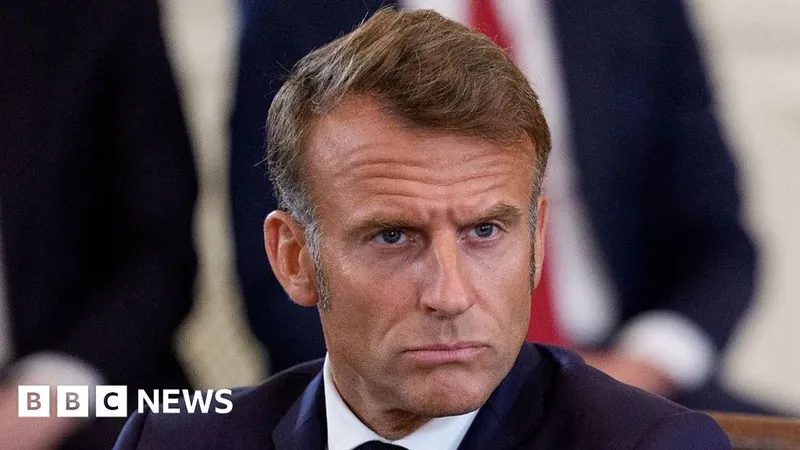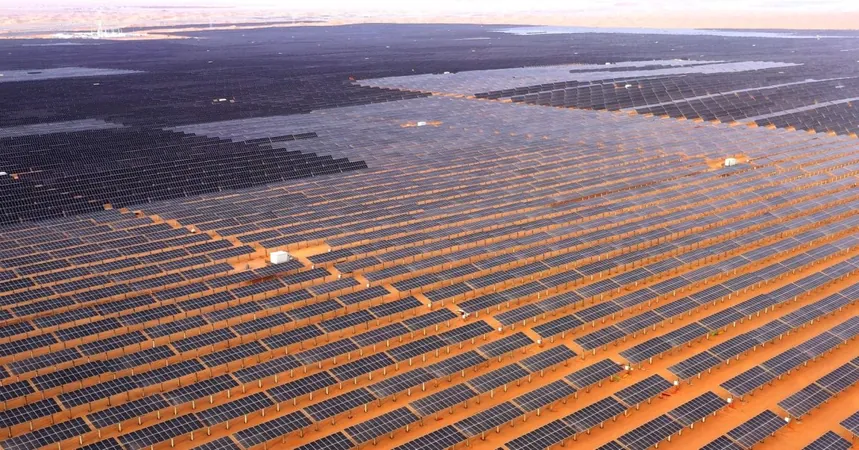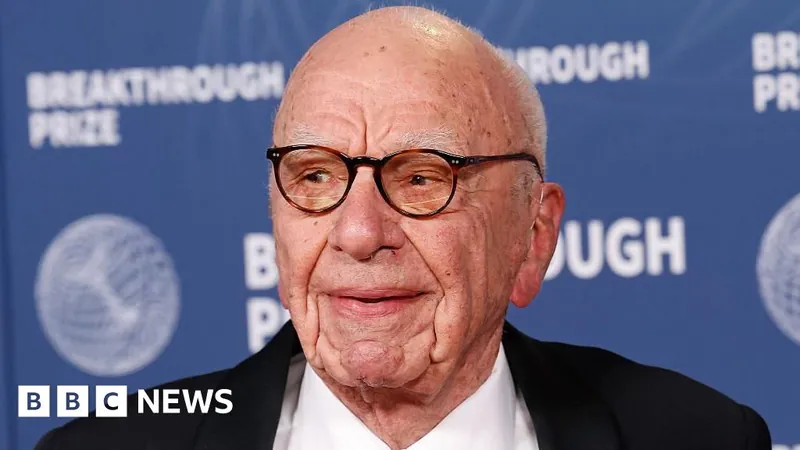
Macron Faces Growing Pressure for a New Prime Minister Amidst Rising Protests in France
2025-09-09
Author: Sophie
In a dramatic political shake-up, French President Emmanuel Macron is facing intense pressure to appoint a new prime minister following the resignation of François Bayrou, who succumbed to a vote of no confidence.
Bayrou's departure was anticipated, as a significant faction in France's hung parliament opposed his controversial budget cut plan aimed at addressing the country's escalating debt, which overshot a staggering €44 billion (approximately £38 billion). Yet, amid economic instability, Macron must navigate one of the highest budget deficits in the eurozone and a chorus of criticism from political adversaries.
As tensions rise, France prepares for a challenging day of protests organized by the grassroots movement Bloquons Tout, or "Let's Block Everything." Authorities are on high alert, mobilizing 80,000 police officers to maintain order amid the anticipated unrest.
With weeks to strategize following Bayrou's self-initiated confidence vote, Macron has committed to announcing a new prime minister within days. This next leader will face the daunting challenge of maneuvering through a fragmented parliament devoid of a clear majority, with multiple factions at odds, some even demanding fresh elections instead of a new appointment.
Speculation over potential successors is rife. Names from Assembly Speaker Yaël Braun-Pivet to Defense Minister Sébastien Lecornu are in the mix. Commentators suggest that Macron will likely need to draw support from leftist parties or centrists to ensure his new prime minister can maneuver through necessary budget reforms, essential in alleviating the country’s debt crisis.
Gabriel Attal, a Macron ally and former prime minister, lamented the "state of permanent instability" gripping France. He advised Macron to appoint a technocrat capable of bridging the gap among rival political factions before announcing a new prime minister.
However, Marine Le Pen of the far-right National Rally immediately criticized Attal’s suggestion, calling it "total nonsense" and joining calls for fresh elections. Nonetheless, Macron appears set on appointing a new prime minister within days, rejecting calls for a new parliamentary vote.
The urgency of this appointment is underscored by France's pressing economic situation, looming market uncertainties, and the chaos of potential strikes and protests. The Bloquons Tout movement aims to paralyze the nation on Wednesday, rallying citizens against austerity measures and perceived governmental contempt.
While uncertainties abound about the actual turnout for the protests, Interior Minister Bruno Retailleau warned that up to 100,000 demonstrators could take to the streets, vowing a robust police presence to confront any potential violence.
Further complicating matters, trade unions have called for strikes against the government’s harsh budgeting policies, lamenting that France is mired in a deep social and democratic crisis.
Retailleau pinned some blame on the radical left, led by Jean-Luc Mélenchon, for fostering an insurrection-like atmosphere, raising concerns that September could escalate into widespread unrest.
On the financial front, France braces for a critical decision from credit agency Fitch on its credit rating, which could see a downgrade, sharply increasing borrowing costs. The nation’s public debt has soared to a staggering €3.3 trillion, representing 114% of its GDP.
"We need a prime minister to embody authority—and quickly," Retailleau emphasized, highlighting the urgent need for stability amid growing unrest.
In a disturbing turn of events, Paris has dealt with racially charged incidents, including finding pig heads outside multiple mosques, which police chief Laurent Núñez linked to previous acts of foreign interference, describing them as "racist acts" that raise significant concerns.









 Brasil (PT)
Brasil (PT)
 Canada (EN)
Canada (EN)
 Chile (ES)
Chile (ES)
 Česko (CS)
Česko (CS)
 대한민국 (KO)
대한민국 (KO)
 España (ES)
España (ES)
 France (FR)
France (FR)
 Hong Kong (EN)
Hong Kong (EN)
 Italia (IT)
Italia (IT)
 日本 (JA)
日本 (JA)
 Magyarország (HU)
Magyarország (HU)
 Norge (NO)
Norge (NO)
 Polska (PL)
Polska (PL)
 Schweiz (DE)
Schweiz (DE)
 Singapore (EN)
Singapore (EN)
 Sverige (SV)
Sverige (SV)
 Suomi (FI)
Suomi (FI)
 Türkiye (TR)
Türkiye (TR)
 الإمارات العربية المتحدة (AR)
الإمارات العربية المتحدة (AR)